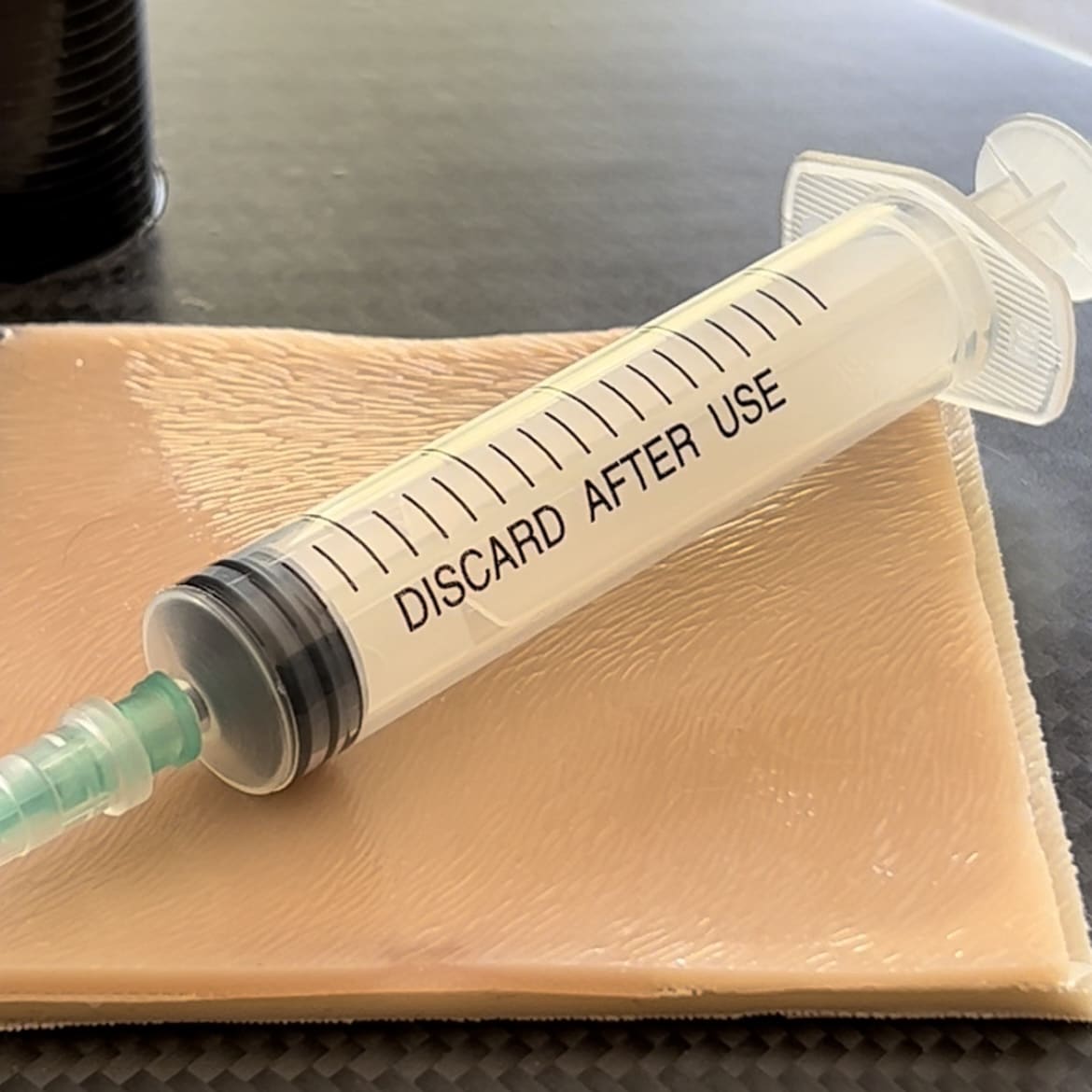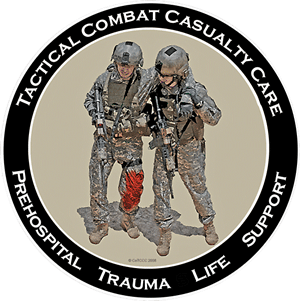battlefield partners
Tactical Combat Casualty Care
TCCC Simulation Solutions: A New Benchmark in Tactical Medical Training
Bravo-Foxtrot-Pappa Requesting 9-Line
Student Realising TCCC SimEx Just Got Real
TCCC: Saving Lives
The 1990s transformed the standards of battlefield care with the initiation of Tactical Combat Casualty Care.
TCCC aims to reduce preventable deaths and severe injuries during combat by providing more effective and tailored prehospital care. It focuses on the three main causes of preventable death in combat: extremity hemorrhage, tension pneumothorax, and airway obstruction.

Why TCCC?
TCCC knowledge is vital for all team members in high-risk environments.
It improves response time to injuries and increases chances of survival until professional medical care becomes available.
Are you, and your unit prepared?

Common Mistakes In Tactical Combat Casualty Care
Inadequate Hemorrhage Control
- Failing to properly apply tourniquets or hemostatic agents can result in preventable loss of life due to bleeding.
Improper Airway Management
- Lack of proper techniques for airway management, like incorrect insertion of nasopharyngeal airways, can compromise breathing.
isuse of Chest Seals
- Incorrectly applied or missed altogether, a faulty chest seal can lead to a worsening tension pneumothorax.
Inadequate Casualty Assessment:
- Failing to adequately assess the casualty’s condition can result in overlooking critical injuries.
Delay in Evacuation
- Ineffective communication or poor planning can delay the evacuation process, prolonging the time it takes to get the wounded to definitive care.
Inadequate Training
- Poorly trained personnel may lack the confidence or knowledge to implement TCCC protocols correctly.
Equipment Unavailability
- Lack of necessary medical supplies, like tourniquets or chest seals, can limit the effectiveness of TCCC.
Failure to Re-assess
- In the chaos of combat, initial life-saving interventions may come undone or need adjustment, and failure to re-assess can be fatal.
Poor Communication
- Ineffective communication between team members can result in a disjointed or delayed care, reducing the casualty’s chance of survival.
Complacency in Skill Maintenance
- Skills decay over time; without regular training and refreshers, even experienced personnel can make mistakes in the heat of the moment.
Realistic Training
Our TCCC simulators feature true-to-life wound patterns to ensure practical, effective training.Train like you fight, so you can fight like you train.
Quick and Cost-Effective
Maximize training repetition without compromising on quality or inflating costs.More repetitions mean better preparedness.
Stress Inoculation
Our robust simulators are designed to elevate stress levels, simulating actual battlefield conditions. Realistic training for real-world challenges.
Excellence in TCCC Training
We partner with leading TCCC providers and deliver unparalleled simulation-based learning experiences.
Featured Products
We craft a wide range of products to support TCCC training providers. Here are a few:

Advanced Wearables

CRIC Mask

Field Case

CRIC Half Mask

Desktop CRIC Trainers

Consumables

Stab wound

Pneumothorax / Hemothorax Wearable
... and much more.
Why Choose Us
Battlefield Partners’ commitment to quality, realism, and training provider support makes us the go-to partner for TCCC training solutions.
- Innovative Design
- Cost-Efficiency
- Durability
- Custom Solutions

Client Testimonials

FAQ
What makes your TCCC training simulators different from others on the market?
- We started Battlefield Partners because the training simulators on our courses were weak. So we built our simulators to be realistic and most importantly, tough! Then we tested them in harsh training environments in Africa to prove it.
How compatible are your simulators with existing TCCC training programs?
- Our products are designed to be fully integrated into any existing TCCC training program. They can also be customized to meet specific training objectives and scenarios.
Can we get a customized training kit tailored for our unit’s specific needs?
- Absolutely, we offer bespoke solutions to meet your specific training requirements, ensuring you get the most effective TCCC training experience possible.
Do you offer any warranties or after-sales support?
- Yes. If you have any issues, just let us know and we’ll work with you to get it squared away and your courses back on track.
Are your simulators suitable for non-medics in a unit?
- Yes, our simulators are designed to be user-friendly and effective for training both medical professionals and non-medics in TCCC procedures.
How quickly can we expect delivery after placing an order?
- Our standard delivery times range from 4 to 6 weeks, depending on the complexity and customization of the order. We also offer expedited options for urgent needs.
How cost-effective are your TCCC simulators in the long run?
- Our simulators are built to last, providing a long-term, cost-effective solution. Additionally, they are designed for quick reset and low consumable costs, ensuring that you get more repetitions for each training dollar spent.
What kind of after-sales support can I expect?
- We provide a robust after-sales support system, which includes troubleshooting, maintenance guides, and software updates. Our customer success team is dedicated to ensuring you get the maximum value out of your investment and are fully satisfied with your purchase.
From The Field
Thanks to our customers and partners who trust Battlefield Partners to support their mission.
Get Your Quote
Fill in your details and we'll send you a quote.
Resources We Use

Committee on Tactical Combat Casualty Care (CoTCCC)
The CoTCCC, or the Committee on Tactical Combat Casualty Care, is responsible for developing and regularly updating the Tactical Combat Casualty Care (TCCC) guidelines. Established in 2001, this multidisciplinary committee comprises combat medics, Special Operations Forces, researchers, and trauma surgeons, among other experts. Their mission is to reduce preventable combat deaths by continually evolving the TCCC guidelines based on the latest medical research and field data.
Their site, podcast and other assets are a valuable resource.
